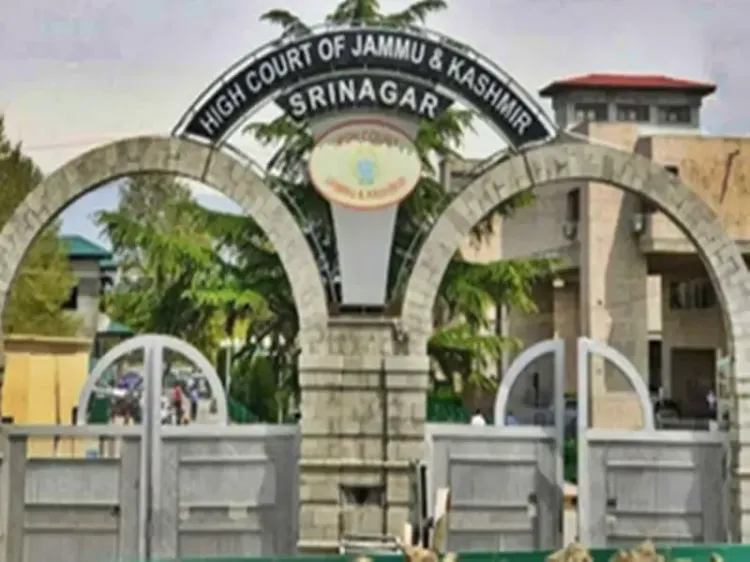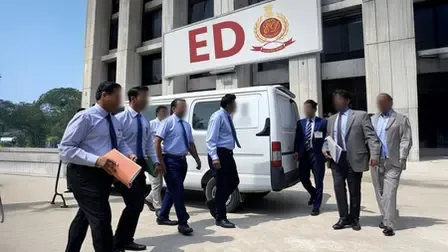What Are the Latest Judicial Appointments in J&K and Ladakh?

Synopsis
Key Takeaways
- Two judicial officers appointed as High Court Judges in J&K and Ladakh.
- Appointments followed recommendations from the Supreme Court Collegium.
- Chief Justice Sanjiv Khanna played a pivotal role in their appointment.
- The process involves consultation with the Chief Minister and Governor.
- Official announcement will be made in the Gazette of India.
New Delhi, April 29 (NationPress) The Central Government has officially announced the appointment of two judicial officers as Judges of the Jammu & Kashmir and Ladakh High Court, following the recommendations from the Supreme Court Collegium led by Chief Justice Sanjiv Khanna.
According to a notification from the Union Ministry of Law and Justice, "In exercise of the power conferred by clause (1) of Article 217 of the Constitution of India, the President is pleased to appoint S/Shri (i) Sanjay Parihar and (ii) Shahzad Azeem as Judges of the Jammu & Kashmir and Ladakh High Court, effective from the date they take charge of their respective roles."
The Supreme Court Collegium convened on April 16, 2025, and approved the appointment of these judicial officers: (i) Shri Sanjay Parihar and (ii) Shri Shahzad Azeem, as per a resolution published on the apex court's website.
The recommendation for appointing Parihar and Azeem was made by the Chief Justice of the Jammu & Kashmir and Ladakh High Court after consulting with his two senior-most colleagues.
According to the memorandum of procedure (MoP) that governs High Court judicial appointments, the Chief Justice initiates the proposal.
If the Chief Minister wishes to recommend someone, they should present the name to the Chief Justice for consideration. The Governor, advised by the Chief Minister, should forward the recommendation with supporting documents to the Union Minister of Law & Justice promptly, but no later than six weeks from the date of receiving the proposal from the Chief Justice.
If feedback is not received within the specified timeline, the Union Minister of Law & Justice may assume that the Governor (i.e., Chief Minister) has no additional comments and will proceed accordingly. The Minister will then review the recommendations alongside any other relevant reports concerning the candidates under consideration. This complete information will be forwarded to the Chief Justice of India for their advice. The Chief Justice of India, in consultation with two senior Judges of the Supreme Court, will form an opinion regarding the recommended appointee to the High Court.
After their consultations, the Chief Justice of India is expected to send his recommendation to the Union Minister of Law & Justice within four weeks.
Furthermore, once the warrant of appointment is signed by the President, the Secretary of the Department of Justice will notify the Chief Justice, and a copy of this communication will also be sent to the Chief Minister. The Chief Minister will then announce the appointment and publish the necessary notification in the Gazette of India.









